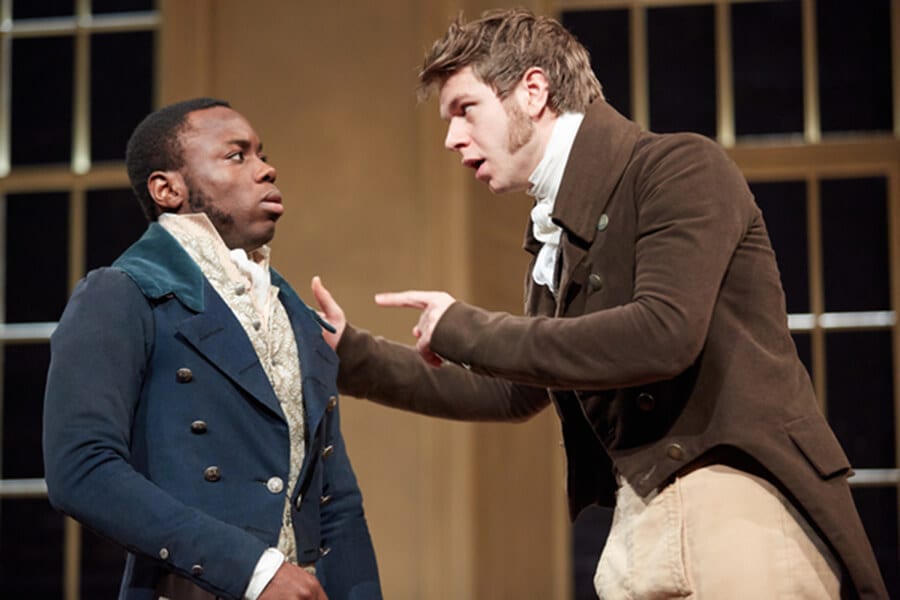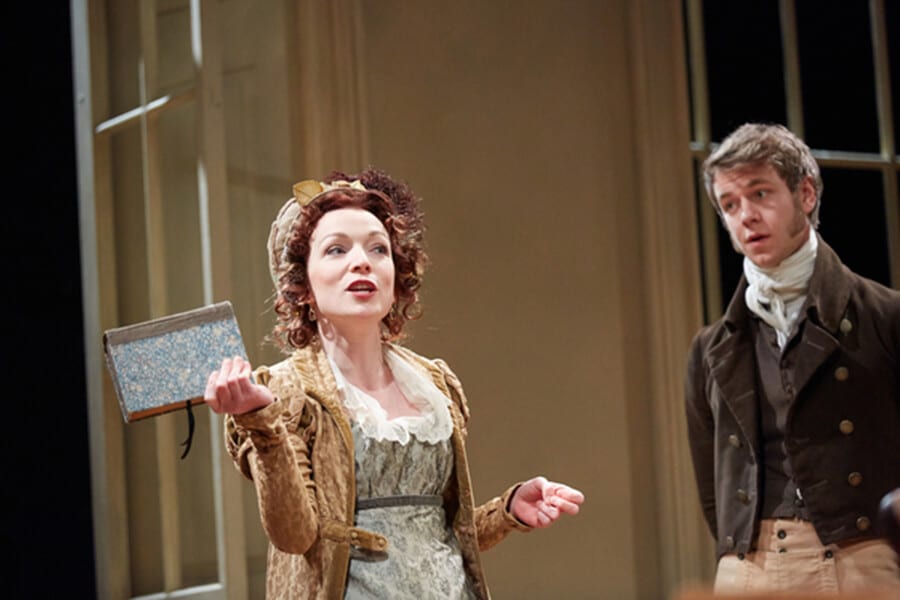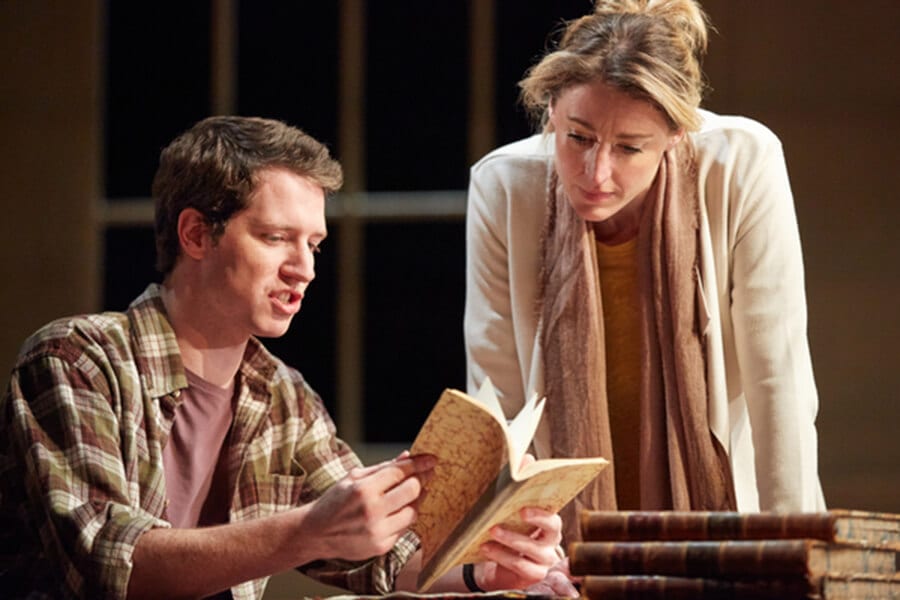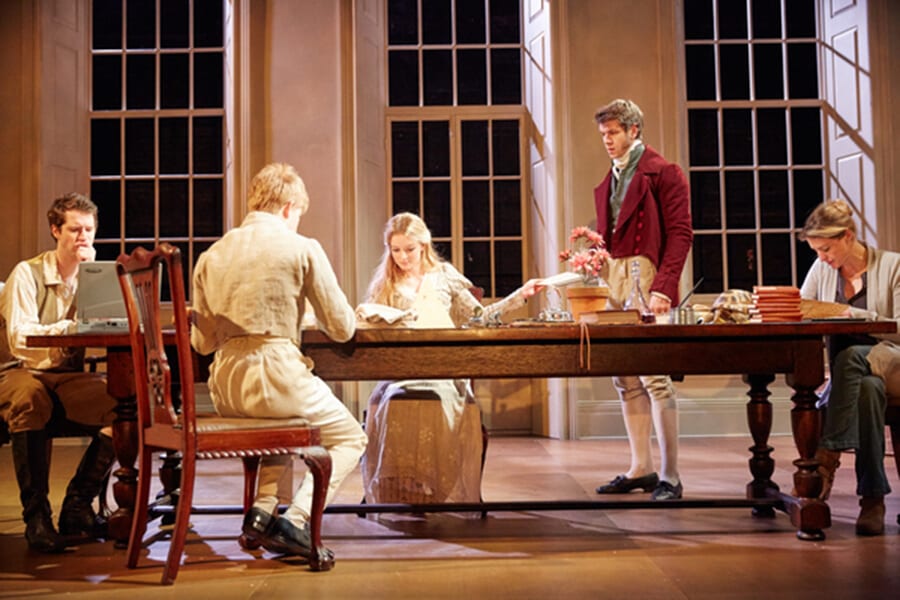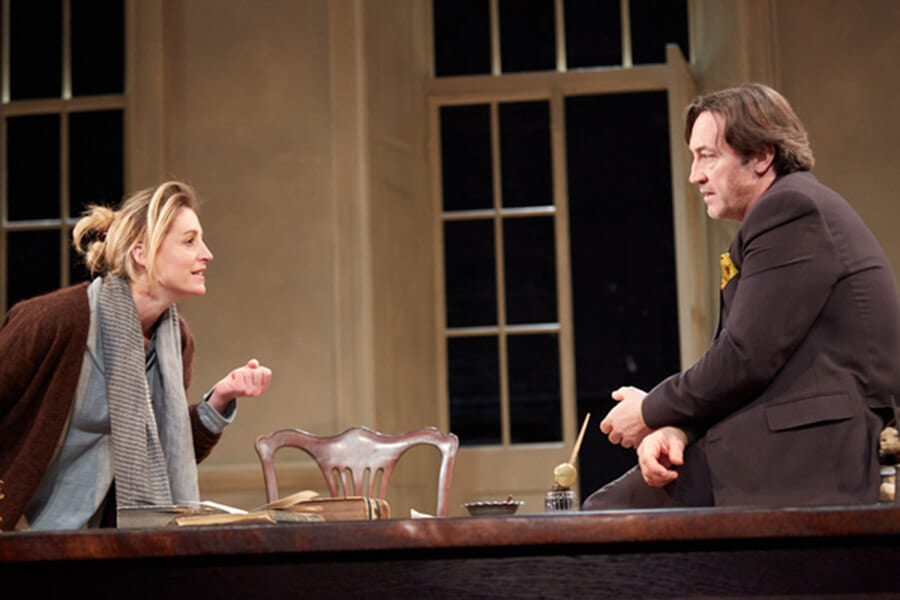Tom Stoppard’s truly wonderful play, Arcadia, is something of a jigsaw puzzle and just as much a crossword puzzle. It is a contemplation of the development of the sciences in the last two hundred years, chaos theory, relativity and sub-atomic discoveries; and also of the intractable and unchanging aspects of the human condition. Set in one simply room of a stately home both in 1809 and, roughly, the end of the twentieth century, we are interested in the story of what happened on a weekend when Lord Byron came to visit the noble family; and also in the investigations of some late twentieth century academics and descendants trying to work out and piece together what happened on that clearly life changing weekend. One of the strands of the play shows us how easy it is to misinterpret the evidence of letters, diaries and lists from the past, how wrong we can get it; and a lot of the fun of the play is the contrast between what our contemporaries deduce and what we see actually happened the early nineteenth century in that very room.
Proceeding with great wit, plenty of verbal fireworks and much hilarity, the play ultimately is a very sad tale. The young and lovely Thomasina Coverly (played charmingly and convincingly by Dakota Blue Richards) is not just an extremely intelligent budding blue stocking, she is also a mathematics genius – but she is a woman in the wrong era. Her lusty tutor, Septimus Hodge (witty and sexy Wilf Scolding), Byron’s friend and the reason for the famous poet’s visit, is potentially a fine writer. But their lives and careers will be blighted by the vagaries of chance. And just about everyone in the play is blighted by covert and overt sexual attractions that they cannot control or quite understand.
In the present, Bernard Nightingale (a strong performance of great humour and pain by Robert Cavanah) is an ambitious, passionate but misguided academic who jumps to too many conclusions too quickly because he so desperately wants to make his mark; and Hannah Jarvis (attractive and captivating Flora Montgomery) is his perfect match, another academic on the trail of new truths but with a far greater attachment to reason and proof. There is nothing much new under the sexual sun in the contemporary room either.
The play swirls with ideas and explanations of some fairly difficult scientific and philosophical ideas but at the centre is the intractable fact that you cannot, in the end, predict anything because of he unpredictability of the human heart, its attractions, its repulsions, its emotions. Tom Stoppard expects his audiences to pay attention – you have to listen to what the characters are talking about at all times; and the plot turns on remarkable and sometimes arcane events. The play is a farcical ride, a steep ski-slope of words and ideas; and a very poignant and romantic drama about the human condition and especially the human emotions.
This production by director Blanche McIntyre is sensitive and uncluttered. It is also, at times, a little lumpy and undercooked, not quite sure of itself. But the time schemes and shifts work seamlessly; the performances range from good to excellent; the main characters do captivate in both eras; and then, at the end, the two eras meld together and the revelation of what happened to the characters of 1809 will break your heart. The audience in Oxford was attentive, laughed a lot, gasped at the right moment, and clearly enjoyed the show enormously. So will you.

